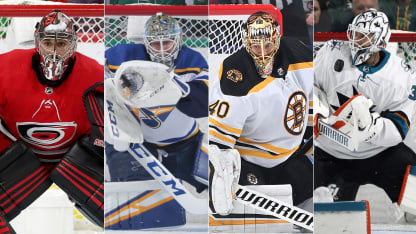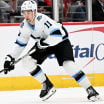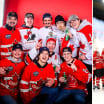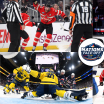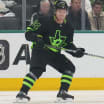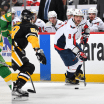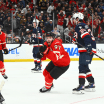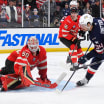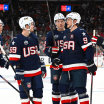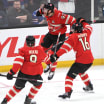The problem for Mrazek at times was that he was overly reliant on his skill and speed, and a positional aggressiveness that opponents began to target. Reining that in, but not so much that he lost some of those skill elements that defined him early, took time, but he appears to have found the right balance in Carolina with Mike Bales, who was the goaltending coach in Pittsburgh for Murray's two Cup wins.
McElhinney seems to have shifted slightly the other way, relying more on instinct, and perhaps he and Mrazek each is taking elements from the other and incorporating them into his own game, which is common for goalies in a timeshare. However, it's not as if McElhinney's strong showing after Mrazek was injured in Game 2 of the second round against the New York Islanders came out of nowhere (3-0, 1.56, .947 in three games before Mrazek rerturned for Game 1 against Boston on Thursday). Before Toronto let him go in favor of a younger backup, 25-year-old Garret Sparks, McElhinney had a .934 save percentage in 18 games (15 starts) last season despite averaging almost 12 days between starts. It was a testament to his mental strength and a technically sound style that has evolved over 11 NHL seasons, one that is less reliant on rhythm, timing and regular playing time.
Jones also has a history of success -- he has 30 playoff wins since 2015-16, tied with Pekka Rinne of the Nashville Predators for second in the NHL in that span -- but goalies are often at the mercy of what goes on in front of them. In Jones' case, seven of the 13 goals he allowed in San Jose's first four playoff games this season came on the rush. But Jones appears to have made an adjustment since then by playing less aggressively, mitigating some of his exposure on movement inefficiencies that were costly earlier this season. He has a .928 save percentage over 10 games since Game 4 against the Golden Knights.
